Search
Search results
Micky Barnard (542 KP) rated Gilded Cage in Books
Jan 26, 2019 (Updated Jan 26, 2019)
Disappointing
This was a book with big aspirations but patchy execution. I thought I was getting into some kind of dystopia with 'special skilled people'. On the one hand, that's what I got, on the other it was much more than this, almost too much of many other things. This is a hugely political read, which I am not adverse to but it was inherently confusing due to an overly large cast of characters, many of similar importance; I didn't know where to place my focus.
The start to the book is gentle (post-prologue), introducing a family who are about to do their ten years time in subservience. Hierarchy is the name of the game in GILDED CAGE and if you're not skilled then you have to forfeit your rights as a person and serve the skilled for ten years in slavedays. This family were from Manchester and as a Mancunian myself, I was piqued at this facet to the book. Manchester had a slaveday town called Millsmoor and this was described as a dark, pre-industrial revolution kind of inhuman place; definitely a contrast to life outside.
Lots about this book interested me, the Equals (skilled) and their way of life. What I found was that almost all of the Equals in this book were obnoxious in one way or another. There was no upstairs/downstairs feel to the story, despite some suggestion of kind dispositions. Do not get me started on the sadomasochistic keeping of a man-dog.
Whilst this is the first book in a trilogy and there is much more to come, the story did not weave together for me at all. I don't feel invested enough to continue with the rest of the series.
I voluntarily read an early copy of this book.
The start to the book is gentle (post-prologue), introducing a family who are about to do their ten years time in subservience. Hierarchy is the name of the game in GILDED CAGE and if you're not skilled then you have to forfeit your rights as a person and serve the skilled for ten years in slavedays. This family were from Manchester and as a Mancunian myself, I was piqued at this facet to the book. Manchester had a slaveday town called Millsmoor and this was described as a dark, pre-industrial revolution kind of inhuman place; definitely a contrast to life outside.
Lots about this book interested me, the Equals (skilled) and their way of life. What I found was that almost all of the Equals in this book were obnoxious in one way or another. There was no upstairs/downstairs feel to the story, despite some suggestion of kind dispositions. Do not get me started on the sadomasochistic keeping of a man-dog.
Whilst this is the first book in a trilogy and there is much more to come, the story did not weave together for me at all. I don't feel invested enough to continue with the rest of the series.
I voluntarily read an early copy of this book.
Little by Edward Carey was an absolute joy to read. It didn’t occur to me that this was about the early years of Madame Marie Tussaud (or Little) until I’d read the first two chapters. That’s when I decided that I should perhaps read the synopsis. Part of me wishes I hadn’t, because I would have loved the reality to gradually dawn on me. What an early life she lived though!
18th century Paris was a place of great uncertainty - and this book has echoes of Dickensian London. It’s so much more than that though. Not only do we get some wonderful descriptions of the sights, sounds and smells of Paris at the time, we also get to look at Edward Carey’s beautiful pictures. I say beautiful, they’re pictures that portray people in their sometimes beautiful ugliness (that’s a thing, right?).
The life that Little lives! I hadn’t known any of the background of Madame Tussaud, and to be honest, with the way her formative years went, I’m astonished that she survived to old age. The Paris of the French Revolution was a dangerous place, and Little had come to know some dangerous people.
I don’t want to say anything else. It would be a shame for me to reveal any of the (what were to me) big surprises. This is a startling, moving, frustrating, emotional, bizarre, glorious journey through the French years of Madame Tussaud’s life. It was recommended to me by book blogger @yearsofreading, and I’m so glad I listened to her. Now I recommend that if you haven’t read this book, and you’ve read my review this far, go out and read it. You won’t regret it!
18th century Paris was a place of great uncertainty - and this book has echoes of Dickensian London. It’s so much more than that though. Not only do we get some wonderful descriptions of the sights, sounds and smells of Paris at the time, we also get to look at Edward Carey’s beautiful pictures. I say beautiful, they’re pictures that portray people in their sometimes beautiful ugliness (that’s a thing, right?).
The life that Little lives! I hadn’t known any of the background of Madame Tussaud, and to be honest, with the way her formative years went, I’m astonished that she survived to old age. The Paris of the French Revolution was a dangerous place, and Little had come to know some dangerous people.
I don’t want to say anything else. It would be a shame for me to reveal any of the (what were to me) big surprises. This is a startling, moving, frustrating, emotional, bizarre, glorious journey through the French years of Madame Tussaud’s life. It was recommended to me by book blogger @yearsofreading, and I’m so glad I listened to her. Now I recommend that if you haven’t read this book, and you’ve read my review this far, go out and read it. You won’t regret it!
Adam Green recommended Os Muntantes by Os Muntantes in Music (curated)
Cody Cook (8 KP) rated Writings Of Thomas Paine Volume 4 (1794 1796); The Age Of Reason in Books
Jun 29, 2018
Thomas Paine was a political theorist who was perhaps best known for his support for the American Revolution in his pamphlet Common Sense. In what might be his second best known work, The Age of Reason, Paine argued in favor of deism and against the Christian religion and its conception of God. By deism it is meant the belief in a creator God who does not violate the laws of nature by communicating through revelation or miracles The book was very successful and widely read partly due to the fact that it was written in a style which appealed to a popular audience and often implemented a sarcastic, derisive tone to make its points.
The book seems to have had three major objectives: the support of deism, the ridicule of what Paine found loathsome in Christian theology, and the demonstration of how poor an example the Bible is as a reflection of God.
In a sense, Paine's arguments against Christian theology and scripture were meant to prop up his deistic philosophy. Paine hoped that in demonizing Christianity while giving evidences for God, he would somehow have made the case for deism. But this is not so. If Christianity is false, but God exists nonetheless, we are not left only with deism. There are an infinite number of possibilities for us to examine regarding the nature of God, and far too many left over once we have eliminated the obviously false ones. In favor of deism Paine has only one argument—his dislike of supernatural revelation, which is to say that deism appeals to his culturally derived preferences. In any case, Paine's thinking on the matter seemed to be thus: if supernatural revelation could be shown to be inadequate and the development of complex theology shown to be an error, one could still salvage a belief in God as Creator, but not as an interloper in human affairs who required mediators.
That being said, in his support of deism, Paine makes some arguments to demonstrate the reasonableness in belief in, if not the logical necessity of the existence of, God which could be equally used by Christians.
For instance, just as the apostle Paul argued in his epistle to the Romans that, "what can be known about God is plain to [even pagans], because God has shown it to them. For his invisible attributes, namely, his eternal power and divine nature, have been clearly perceived, ever since the creation of the world, in the things that have been made" (Romans 1:19-20, ESV), so also Paine can say that, "the Creation speaketh an universal language [which points to the existence of God], independently of human speech or human language, multiplied and various as they be."
The key point on which Paine differs from Paul on this issue is in his optimism about man's ability to reason to God without His assisting from the outside. Whereas Paul sees the plainness of God from natural revelation as an argument against the inherent goodness of a species which can read the record of nature and nevertheless rejects its Source's obvious existence, Paine thinks that nature and reason can and do lead us directly to the knowledge of God's existence apart from any gracious overtures or direct revelation.
On the witness of nature, Paine claims, and is quite correct, that, "THE WORD OF GOD IS THE CREATION WE BEHOLD: And it is in this word, which no human invention can counterfeit or alter, that God speaketh universally to man." What is not plainly clear, however, is that man is free enough from the noetic effects of sin to reach such an obvious conclusion on his own. Indeed, the attempts of mankind to create a religion which represents the truth have invariably landed them at paganism. By paganism I mean a system of belief based, as Yehezkel Kaufmann and John N. Oswalt have shown, on continuity.iv In polytheism, even the supernatural is not really supernatural, but is perhaps in some way above humans while not being altogether distinct from us. What happens to the gods is merely what happens to human beings and the natural world writ large, which is why the gods are, like us, victims of fate, and why pagan fertility rituals have attempted to influence nature by influencing the gods which represent it in accordance with the deeper magic of the eternal universe we all inhabit.
When mankind has looked at nature without the benefit of supernatural revelation, he has not been consciously aware of a Being outside of nature which is necessarily responsible for it. His reasoning to metaphysics is based entirely on his own naturalistic categories derived from his own experience. According to Moses, it took God revealing Himself to the Hebrews for anyone to understand what Paine thinks anyone can plainly see.
The goal of deism is to hold onto what the western mind, which values extreme independence of thought, views as attractive in theism while casting aside what it finds distasteful. But as C.S. Lewis remarked, Aslan is not a tame lion. If a sovereign God exists, He cannot be limited by your desires of what you'd like Him to be. For this reason, the deism of men like Paine served as a cultural stepping stone toward the atheism of later intellectuals.
For Paine, as for other deists and atheists like him, it is not that Christianity has been subjected to reason and found wanting, but that it has been subjected to his own private and culturally-determined tastes and preferences and has failed to satisfy. This is the flipside of the anti-religious claim that those who believe in a given religion only do so because of their cultural conditioning: the anti-religionist is also conditioned in a similar way. Of course, how one comes to believe a certain thing has no bearing on whether that thing is true in itself, and this is true whether Christianity, atheism, or any other view is correct. But it must be stated that the deist or atheist is not immune from the epistemic difficulties which he so condescendingly heaps on theists.
One of the befuddling ironies of Paine's work is that around the time he was writing about the revealed religions as, “no other than human inventions set up to terrify and enslave mankind, and monopolize power and profit," the French were turning churches into “temples of reason” and murdering thousands at the guillotine (an instrument of execution now most strongly identified with France's godless reign of terror). Paine, who nearly lost his own life during the French Revolution, saw the danger of this atheism and hoped to stay its progress, despite the risk to his own life in attempting to do so.
What is odd is that Paine managed to blame this violent atheism upon the Christian faith! Obfuscated Paine:
"The Idea, always dangerous to Society as it is derogatory to the Almighty, — that priests could forgive sins, — though it seemed to exist no longer, had blunted the feelings of humanity, and callously prepared men for the commission of all crimes. The intolerant spirit of church persecution had transferred itself into politics; the tribunals, stiled Revolutionary, supplied the place of an Inquisition; and the Guillotine of the Stake. I saw many of my most intimate friends destroyed; others daily carried to prison; and I had reason to believe, and had also intimations given me, that the same danger was approaching myself."
That Robespierre's deism finally managed to supplant the revolutionary state's atheism and that peace, love, and understanding did not then spread throughout the land undermines Paine's claims. Paine felt that the revolution in politics, especially as represented in America, would necessarily lead to a revolution in religion, and that this religious revolution would result in wide acceptance of deism. The common link between these two revolutions was the idea that the individual man was sovereign and could determine for himself what was right and wrong based on his autonomous reason. What Paine was too myopic to see was that in France's violence and atheism was found the logical consequence of his individualistic philosophy. In summary, it is not Christianity which is dangerous, but the spirit of autonomy which leads inevitably into authoritarianism by way of human desire.
As should be clear by now, Paine failed to understand that human beings have a strong tendency to set impartial reason aside and to simply evaluate reality based on their desires and psychological states. This is no more obvious than in his own ideas as expressed in The Age of Reason. Like Paine's tendency to designate every book in the Old Testament which he likes as having been written originally by a gentile and translated into Hebrew, so many of his criticisms of Christian theology are far more a reflection upon himself than of revealed Christianity. One has only to look at Paine's description of Jesus Christ as a “virtuous reformer and revolutionist” to marvel that Paine was so poor at introspection so as to not understand that he was describing himself.
There is much more that could be said about this work, but in the interest of being somewhat concise, I'll end my comments here. If you found this analysis to be useful, be sure to check out my profile and look for my work discussing Paine and other anti-Christian writers coming soon.
The book seems to have had three major objectives: the support of deism, the ridicule of what Paine found loathsome in Christian theology, and the demonstration of how poor an example the Bible is as a reflection of God.
In a sense, Paine's arguments against Christian theology and scripture were meant to prop up his deistic philosophy. Paine hoped that in demonizing Christianity while giving evidences for God, he would somehow have made the case for deism. But this is not so. If Christianity is false, but God exists nonetheless, we are not left only with deism. There are an infinite number of possibilities for us to examine regarding the nature of God, and far too many left over once we have eliminated the obviously false ones. In favor of deism Paine has only one argument—his dislike of supernatural revelation, which is to say that deism appeals to his culturally derived preferences. In any case, Paine's thinking on the matter seemed to be thus: if supernatural revelation could be shown to be inadequate and the development of complex theology shown to be an error, one could still salvage a belief in God as Creator, but not as an interloper in human affairs who required mediators.
That being said, in his support of deism, Paine makes some arguments to demonstrate the reasonableness in belief in, if not the logical necessity of the existence of, God which could be equally used by Christians.
For instance, just as the apostle Paul argued in his epistle to the Romans that, "what can be known about God is plain to [even pagans], because God has shown it to them. For his invisible attributes, namely, his eternal power and divine nature, have been clearly perceived, ever since the creation of the world, in the things that have been made" (Romans 1:19-20, ESV), so also Paine can say that, "the Creation speaketh an universal language [which points to the existence of God], independently of human speech or human language, multiplied and various as they be."
The key point on which Paine differs from Paul on this issue is in his optimism about man's ability to reason to God without His assisting from the outside. Whereas Paul sees the plainness of God from natural revelation as an argument against the inherent goodness of a species which can read the record of nature and nevertheless rejects its Source's obvious existence, Paine thinks that nature and reason can and do lead us directly to the knowledge of God's existence apart from any gracious overtures or direct revelation.
On the witness of nature, Paine claims, and is quite correct, that, "THE WORD OF GOD IS THE CREATION WE BEHOLD: And it is in this word, which no human invention can counterfeit or alter, that God speaketh universally to man." What is not plainly clear, however, is that man is free enough from the noetic effects of sin to reach such an obvious conclusion on his own. Indeed, the attempts of mankind to create a religion which represents the truth have invariably landed them at paganism. By paganism I mean a system of belief based, as Yehezkel Kaufmann and John N. Oswalt have shown, on continuity.iv In polytheism, even the supernatural is not really supernatural, but is perhaps in some way above humans while not being altogether distinct from us. What happens to the gods is merely what happens to human beings and the natural world writ large, which is why the gods are, like us, victims of fate, and why pagan fertility rituals have attempted to influence nature by influencing the gods which represent it in accordance with the deeper magic of the eternal universe we all inhabit.
When mankind has looked at nature without the benefit of supernatural revelation, he has not been consciously aware of a Being outside of nature which is necessarily responsible for it. His reasoning to metaphysics is based entirely on his own naturalistic categories derived from his own experience. According to Moses, it took God revealing Himself to the Hebrews for anyone to understand what Paine thinks anyone can plainly see.
The goal of deism is to hold onto what the western mind, which values extreme independence of thought, views as attractive in theism while casting aside what it finds distasteful. But as C.S. Lewis remarked, Aslan is not a tame lion. If a sovereign God exists, He cannot be limited by your desires of what you'd like Him to be. For this reason, the deism of men like Paine served as a cultural stepping stone toward the atheism of later intellectuals.
For Paine, as for other deists and atheists like him, it is not that Christianity has been subjected to reason and found wanting, but that it has been subjected to his own private and culturally-determined tastes and preferences and has failed to satisfy. This is the flipside of the anti-religious claim that those who believe in a given religion only do so because of their cultural conditioning: the anti-religionist is also conditioned in a similar way. Of course, how one comes to believe a certain thing has no bearing on whether that thing is true in itself, and this is true whether Christianity, atheism, or any other view is correct. But it must be stated that the deist or atheist is not immune from the epistemic difficulties which he so condescendingly heaps on theists.
One of the befuddling ironies of Paine's work is that around the time he was writing about the revealed religions as, “no other than human inventions set up to terrify and enslave mankind, and monopolize power and profit," the French were turning churches into “temples of reason” and murdering thousands at the guillotine (an instrument of execution now most strongly identified with France's godless reign of terror). Paine, who nearly lost his own life during the French Revolution, saw the danger of this atheism and hoped to stay its progress, despite the risk to his own life in attempting to do so.
What is odd is that Paine managed to blame this violent atheism upon the Christian faith! Obfuscated Paine:
"The Idea, always dangerous to Society as it is derogatory to the Almighty, — that priests could forgive sins, — though it seemed to exist no longer, had blunted the feelings of humanity, and callously prepared men for the commission of all crimes. The intolerant spirit of church persecution had transferred itself into politics; the tribunals, stiled Revolutionary, supplied the place of an Inquisition; and the Guillotine of the Stake. I saw many of my most intimate friends destroyed; others daily carried to prison; and I had reason to believe, and had also intimations given me, that the same danger was approaching myself."
That Robespierre's deism finally managed to supplant the revolutionary state's atheism and that peace, love, and understanding did not then spread throughout the land undermines Paine's claims. Paine felt that the revolution in politics, especially as represented in America, would necessarily lead to a revolution in religion, and that this religious revolution would result in wide acceptance of deism. The common link between these two revolutions was the idea that the individual man was sovereign and could determine for himself what was right and wrong based on his autonomous reason. What Paine was too myopic to see was that in France's violence and atheism was found the logical consequence of his individualistic philosophy. In summary, it is not Christianity which is dangerous, but the spirit of autonomy which leads inevitably into authoritarianism by way of human desire.
As should be clear by now, Paine failed to understand that human beings have a strong tendency to set impartial reason aside and to simply evaluate reality based on their desires and psychological states. This is no more obvious than in his own ideas as expressed in The Age of Reason. Like Paine's tendency to designate every book in the Old Testament which he likes as having been written originally by a gentile and translated into Hebrew, so many of his criticisms of Christian theology are far more a reflection upon himself than of revealed Christianity. One has only to look at Paine's description of Jesus Christ as a “virtuous reformer and revolutionist” to marvel that Paine was so poor at introspection so as to not understand that he was describing himself.
There is much more that could be said about this work, but in the interest of being somewhat concise, I'll end my comments here. If you found this analysis to be useful, be sure to check out my profile and look for my work discussing Paine and other anti-Christian writers coming soon.
Neon's Nerd Nexus (360 KP) rated Parasite (2019) in Movies
Dec 16, 2019
Heavy Is The Head
Parasite is so utterly complex, brilliant and captivating that it brings an entire new meaning to the word perfection. A true revolution in film making with such tightly woven narative, twisted depictions of real life struggles and important intricate messages Parasite is practically bursting at the seems with metaphores, hidden meanings, symbolism and comparisons but whats so great about it is that its never feels forced, in your face or patronising once. Theres certainly a hell of a lot more there if you want to delve deeper thats for sure (just trying to decipher it all now for this review is hurting my head) but theres also plenty there for those that dont want that depth too. This is Korean cinema at its absolute finest mixing so many diffrent genres together flawlessly to create butter smooth tension, spine chilling horror, mind bending philosophy, harsh history, political accuracy, eye watering comedy, touching drama and stomach churning raw emotion. A tale of rich and poor at its core but also a film about entitlement, happiness, human nature, selfishness and ambition Parasite teaches us so cleverly/effectively to have new found appreciation for what we have no matter how little that may be and also to stand together/respect one another and apreciate those close to us before its to late. Being likened to a Tarantino film by many and while I can see the similarities I honestly found Parasite to be genuinely a way smarter, better structured/layered more thrilling and an all round tighter/more interesting movie compared to his work if im honest. I urge anyone that loves and takes cinema seriously to see this without hesitation its unpredictability/intricacy are a true experience to behold (just like the sensation you get when you slip on ice but regain your balance just before you fall) it will leave you cold, breathless, excited and entranced.
Anand Wilder recommended Tea for the Tillerman by Cat Stevens in Music (curated)
Kelly Knows (95 KP) rated Ready Player One (2018) in Movies
Jun 27, 2019
Press Start to Join The Rebellion
A truly excellent movie for the whole family to enjoy. Ready Player One has all of the elements required for a movie to truly excel in the telling of its story. The action is epic, the heroes are cool, and oh boy the fun and laughs you'll have along the way. The voice acting cast was well handled, but is probably the main reason I did not give this one full points. The studio could have gotten higher level actors to sell the more emotional plot points. Olivia Cooke and Tye Sheridan still do a masterful job with their roles, but some lines were delivered with a Spy Kids level of corniness. In truth, you have to hunt for flaws in this movie as if they were easter eggs themselves. Parzival, and the rest of the hunters on the quest, weave a beautiful tapestry of tropes that blends modern gaming escapism with social revolution. Not all the characters are super deep, nor do they have to be. You will find yourself cheering for the good guys, and jeering the bad. That's the beauty of this movie. It is a perfect chance to enjoy a thrilling tale of adventure, romance, and world domination, without having to buckle in for an Oscar level drama. The best of this movie however, and the reason I would ultimately recommend it to just about anyone is the sheer beauty and power of the visual effects, and the warm nostalgia that permeates every aspect of the plot. Pop culture references that are sure to make you grin are peppered throughout as the story unfolds. Any gamer, movie buff, rebel at heart, or really just about anyone who has ever had any kind of electronic fun since the 60s will find a note in the proverbial song meant just for them. Get your game face on, this is a good one.
ClareR (5885 KP) rated The Museum of Broken Promises in Books
Sep 8, 2019
I would absolutely visit this museum!
This is a story about a museum that contains the physical objects that symbolise a broken promise or a betrayal to those who have donated them (and this is SUCH a good idea for a museum!). The Museum of Broken Promises is in Paris, and its owner Laure chooses the items that go in to the museum after she either speaks to the donator, or simply reads the note that is sent with the item. Laure has experience in these matters: her own object sits in the museum.
I don’t know what I was expecting from this novel, but I was so surprised by the way this story progressed. Laure as a young woman becomes an au pair for a Czech family in Paris after her father dies. She then realises that she needs a break from university to grieve and get away from her life for a while. So when the family return to Prague for the summer, Laure goes with them. And so begins her life behind the iron curtain.
What follows is a love story between Laure and a musician and political activist, Tomas. We see how restricted people and their thoughts were, and we see why Laure becomes the woman she is in present day Paris.
I really liked the way we moved back and forth through time with Laure, and got to see Prague before its Velvet Revolution, Germany just after the Wall comes down and Paris in the present day. Laure is far more complex a character than I expected her to be at first.
I adored this book. It’s a sad story told so well - and I warn you that the end should be read with tissues to hand.
Many thanks to the publisher Corvus and NetGalley for my copy of this book, and to Pigeonhole for actually making me read it on time (I love my Pigeonhole gang!)!
I don’t know what I was expecting from this novel, but I was so surprised by the way this story progressed. Laure as a young woman becomes an au pair for a Czech family in Paris after her father dies. She then realises that she needs a break from university to grieve and get away from her life for a while. So when the family return to Prague for the summer, Laure goes with them. And so begins her life behind the iron curtain.
What follows is a love story between Laure and a musician and political activist, Tomas. We see how restricted people and their thoughts were, and we see why Laure becomes the woman she is in present day Paris.
I really liked the way we moved back and forth through time with Laure, and got to see Prague before its Velvet Revolution, Germany just after the Wall comes down and Paris in the present day. Laure is far more complex a character than I expected her to be at first.
I adored this book. It’s a sad story told so well - and I warn you that the end should be read with tissues to hand.
Many thanks to the publisher Corvus and NetGalley for my copy of this book, and to Pigeonhole for actually making me read it on time (I love my Pigeonhole gang!)!
Gareth von Kallenbach (980 KP) rated Les Misérables (2012) in Movies
Aug 7, 2019
Words cannot express how amazing this movie is. For those of you who have shouldered through the modern-day musical revival; suffering through the questionable singing talents of many stars as “Phantom of the Opera,” “Chicago,” “Moulin Rouge,” “Sweeny Todd,” and that abysmal rendition of “Nine” – I can assure you, that “Les Mis” will change that perception. For once, the casting crew took the time to select a cast capable of the repertoire’s vocal demands (and Les Mis is very vocally demanding – as most operatic pieces are). It’s apparent that each singer was heavily vocally coached and trained, some faring more so than others. While this is no replacement for raw talent, I can assure you that the cast was downright fantastic.
For years I studied and sang opera. I know music and I’ve sung my fair share of Les Mis pieces in my past. I adore Victor Hugo and “Les Misérables” is by far one of my favorite literary works. When I began to watch this movie, I was keyed up to be critical on the vocal spectrum, the literary aspect, and the representation of one of my favorite Broadway/London pieces. To be frank, I wasn’t disappointed at all.
For those unfamiliar with Hugo’s work or what to expect with Les Mis, let me give you a brief synopsis on its plot and the history of the French revolution in which this takes place. France has just endured her infamous Revolution (the one with the guillotine, Marie-Antoinette, and the Sans Culottes movement) and her people are still suffering. There is no money for food, the country is in the midst of a depression, and the Napoleonic regime is yet to come to fruition. Thus, you find Fantine (Hathaway), a poor but determined (and beautiful) woman trying desperately to make enough money to support her daughter, Cosette, who resides with friends in another city. The book reveals that Madame Thénardier (Bonham-Carter) and her husband, Thénardier (Baron-Cohen) were supposed to be taking the money that Fantine had given to them to provide for her daughter, Cosette. Instead, however, Cosette is forced to live in absolute poverty while Thénardier’s daughter, Eponine, lives the life of opulence. Meanwhile, Jean Valjean (Jackman), an ex-convict, is trying desperately to find legitimate work after his stint in prison for stealing a loaf of bread to provide for his starving family. The infamous policeman, Javert (Crowe), feels Valjean will re-offend and makes it his mission to pursue Valjean until the end.
Finding the world a terrible place as an ex-convict, Valjean seeks to steal from a church her silver, believing he has no other way to survive. It is the love of a good priest, however, who gives Valjean the silver he seeks under the pledge he will become a servant of God and provide for others the same good he has provided for him. Thus, years later, we find Valjean a reformed man (who has skipped on his parole and assumed a new name), running a factory in which Fantine works. And so, when Fantine is fired from her job and takes to a life of prostitution in order to provide for her daughter, it is Valjean who feels the burden of her demise and takes it upon himself to save Cosette and raise her as his own.
Of course, this entire time, Javert is pursuing Valjean and a new revolution is starting to take place amongst Paris’ people. Years later we find Cosette grown to womanhood (now played by Seyfried), and falling in love with one of the revolution’s key players, a youth by the name of Marius (Redmayne). The Thénardiers are back again and we find their once-grand lifestyle has resorted to a life of gutter-crime and Éponine (now played by Barks), is desperately in love with Marius as well (although her love is unrequited). For those unfamiliar with how the story plays out, I will leave it at that.
I will caution those who have never seen this play to prepare for a long show. It is very dramatic and very intense, but visually breath-taking and emotionally moving in so many ways. Vocally, there are times when the legato is lacking and some transitions seemed forced (Crowe struggled many times with allowing his natural vibrato to come through instead of pushing a sustained note; Seyfried’s vibrato is very trill-like and sometimes distracts from the pure quality of her spinto-soprano range). However, I must say that I was blown away by Hathway’s performance (she brought me to tears with “I Dreamed a Dream” due to her emotional rendition) and her ability to truly escape into her character. Similarly, Tviet (he played Enjolras) was stunning with his vocal command and Redmayne was equally as impressive. Jackman will amaze you with his rich tenor and, surprisingly, I found Crowe to have a fantastic baritone when he didn’t force his work. Baron-Cohen and Bonham-Carter provided a much needed comical respite throughout the film (and both sing beautifully as well, although this movie didn’t focus on their vocal command as much). Barks did a lovely job for most of her work; although I found her rendition of “On My Own” a bit forced (she is a true mezzo but seemed to push her high notes, although this may have been where her voice shifted into her head voice which is no fault of her own).
Overall, if you are an avid musical lover and have been waiting for a proper rendition of this production, this movie will astound you. Visually, the movie is breath-taking and the acting is absolutely fantastic. I’m still haunted by the revolutionary song, to be honest. If you’ve been waiting for a musical worthy of the big screen, this one is it. Look for it to sweep the Oscars this year.
This movie deserves an A all around.
For years I studied and sang opera. I know music and I’ve sung my fair share of Les Mis pieces in my past. I adore Victor Hugo and “Les Misérables” is by far one of my favorite literary works. When I began to watch this movie, I was keyed up to be critical on the vocal spectrum, the literary aspect, and the representation of one of my favorite Broadway/London pieces. To be frank, I wasn’t disappointed at all.
For those unfamiliar with Hugo’s work or what to expect with Les Mis, let me give you a brief synopsis on its plot and the history of the French revolution in which this takes place. France has just endured her infamous Revolution (the one with the guillotine, Marie-Antoinette, and the Sans Culottes movement) and her people are still suffering. There is no money for food, the country is in the midst of a depression, and the Napoleonic regime is yet to come to fruition. Thus, you find Fantine (Hathaway), a poor but determined (and beautiful) woman trying desperately to make enough money to support her daughter, Cosette, who resides with friends in another city. The book reveals that Madame Thénardier (Bonham-Carter) and her husband, Thénardier (Baron-Cohen) were supposed to be taking the money that Fantine had given to them to provide for her daughter, Cosette. Instead, however, Cosette is forced to live in absolute poverty while Thénardier’s daughter, Eponine, lives the life of opulence. Meanwhile, Jean Valjean (Jackman), an ex-convict, is trying desperately to find legitimate work after his stint in prison for stealing a loaf of bread to provide for his starving family. The infamous policeman, Javert (Crowe), feels Valjean will re-offend and makes it his mission to pursue Valjean until the end.
Finding the world a terrible place as an ex-convict, Valjean seeks to steal from a church her silver, believing he has no other way to survive. It is the love of a good priest, however, who gives Valjean the silver he seeks under the pledge he will become a servant of God and provide for others the same good he has provided for him. Thus, years later, we find Valjean a reformed man (who has skipped on his parole and assumed a new name), running a factory in which Fantine works. And so, when Fantine is fired from her job and takes to a life of prostitution in order to provide for her daughter, it is Valjean who feels the burden of her demise and takes it upon himself to save Cosette and raise her as his own.
Of course, this entire time, Javert is pursuing Valjean and a new revolution is starting to take place amongst Paris’ people. Years later we find Cosette grown to womanhood (now played by Seyfried), and falling in love with one of the revolution’s key players, a youth by the name of Marius (Redmayne). The Thénardiers are back again and we find their once-grand lifestyle has resorted to a life of gutter-crime and Éponine (now played by Barks), is desperately in love with Marius as well (although her love is unrequited). For those unfamiliar with how the story plays out, I will leave it at that.
I will caution those who have never seen this play to prepare for a long show. It is very dramatic and very intense, but visually breath-taking and emotionally moving in so many ways. Vocally, there are times when the legato is lacking and some transitions seemed forced (Crowe struggled many times with allowing his natural vibrato to come through instead of pushing a sustained note; Seyfried’s vibrato is very trill-like and sometimes distracts from the pure quality of her spinto-soprano range). However, I must say that I was blown away by Hathway’s performance (she brought me to tears with “I Dreamed a Dream” due to her emotional rendition) and her ability to truly escape into her character. Similarly, Tviet (he played Enjolras) was stunning with his vocal command and Redmayne was equally as impressive. Jackman will amaze you with his rich tenor and, surprisingly, I found Crowe to have a fantastic baritone when he didn’t force his work. Baron-Cohen and Bonham-Carter provided a much needed comical respite throughout the film (and both sing beautifully as well, although this movie didn’t focus on their vocal command as much). Barks did a lovely job for most of her work; although I found her rendition of “On My Own” a bit forced (she is a true mezzo but seemed to push her high notes, although this may have been where her voice shifted into her head voice which is no fault of her own).
Overall, if you are an avid musical lover and have been waiting for a proper rendition of this production, this movie will astound you. Visually, the movie is breath-taking and the acting is absolutely fantastic. I’m still haunted by the revolutionary song, to be honest. If you’ve been waiting for a musical worthy of the big screen, this one is it. Look for it to sweep the Oscars this year.
This movie deserves an A all around.
Gareth von Kallenbach (980 KP) rated Jonah Hex (2010) in Movies
Aug 8, 2019
DC is at it again spinning comic book heroes, or better yet anti-heroes, into film adaptations. Moreover, the company is maintaining their one-of-a-kind knack for providing lead characters with bad vocals. In this case the raspy voice belongs to the traumatized lead character, a Bounty Hunter named Jonah Hex (Josh Brolin), who has a story to tell, in brutal and confusing detail.
The film mixes the lore of the Old West, vaguely historical aspects of post-Civil War America, and weapons from a very steampunk-the-Industrial-Revolution. The resulting environment is more explosive than the dynamite that is apparently everywhere.
Filled with ideas that trail off into the dust, it quickly becomes clear that this film was finished in a rush. There are too many characters that lack compelling, if any, back-story. The tale that remains is disjointed and drags. All the buzz about the leading lady, Lilah (Megan Fox), was over minimal participation in the film. Sure she looks nice, and wears a steampunky outfit while performing a few quick stunts, but the resulting character (and poor acting) is not worth the media hype.
The few well-played and interesting characters, aside from the brash but tends-to-grow-on-you Jonah, all have bit parts. Among the best performances are Hex’s best friend, Jeb Turnbull (Jeffery Dean Morgan), one of President Grant’s cohorts, Lieutenant Grass (Will Arnett), and the store owner and gun-runner, Smith (Lance Riddick). Most surprising is that the frequent scenes with screen veteran John Malkovich, as lead bad guy Quentin Turnbull, result in a drab uninterested character that completely fails to engage the audience. It is almost a shockingly poor performance for Malkovich.
But hey, the melding of comic book history with actual film shots in the beginning was some of the best work out there for explaining a complex and multi-media adapted back-story. Additionally, the bold uses of color, costume, sets and scenery made the film visually interesting to watch. But with a budget as big as this film had it is hard to accept there wasn’t a better story to tell.
The film mixes the lore of the Old West, vaguely historical aspects of post-Civil War America, and weapons from a very steampunk-the-Industrial-Revolution. The resulting environment is more explosive than the dynamite that is apparently everywhere.
Filled with ideas that trail off into the dust, it quickly becomes clear that this film was finished in a rush. There are too many characters that lack compelling, if any, back-story. The tale that remains is disjointed and drags. All the buzz about the leading lady, Lilah (Megan Fox), was over minimal participation in the film. Sure she looks nice, and wears a steampunky outfit while performing a few quick stunts, but the resulting character (and poor acting) is not worth the media hype.
The few well-played and interesting characters, aside from the brash but tends-to-grow-on-you Jonah, all have bit parts. Among the best performances are Hex’s best friend, Jeb Turnbull (Jeffery Dean Morgan), one of President Grant’s cohorts, Lieutenant Grass (Will Arnett), and the store owner and gun-runner, Smith (Lance Riddick). Most surprising is that the frequent scenes with screen veteran John Malkovich, as lead bad guy Quentin Turnbull, result in a drab uninterested character that completely fails to engage the audience. It is almost a shockingly poor performance for Malkovich.
But hey, the melding of comic book history with actual film shots in the beginning was some of the best work out there for explaining a complex and multi-media adapted back-story. Additionally, the bold uses of color, costume, sets and scenery made the film visually interesting to watch. But with a budget as big as this film had it is hard to accept there wasn’t a better story to tell.
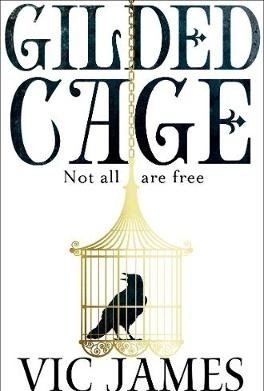
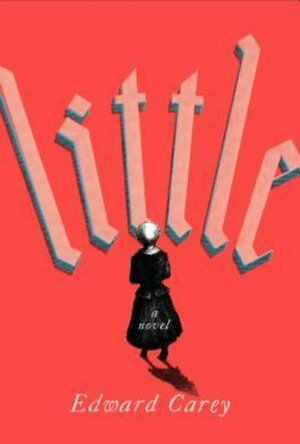
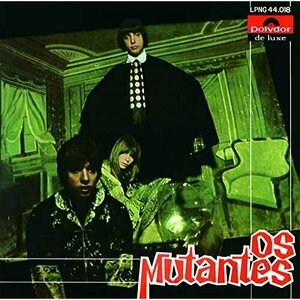

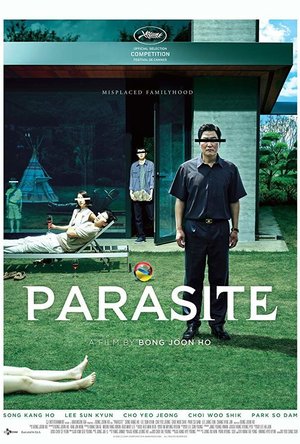


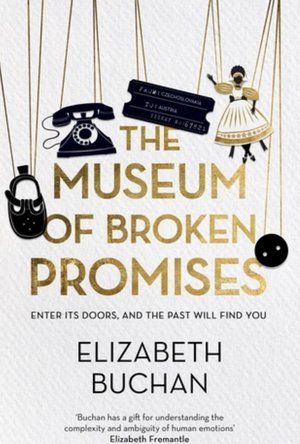
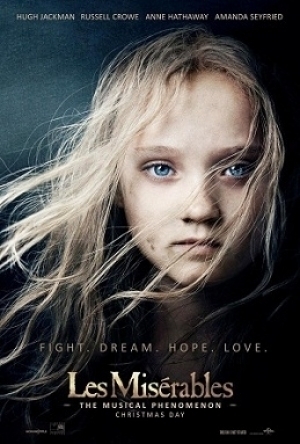

Chloe (514 KP) Jan 27, 2019
Charley (64 KP) Jan 27, 2019